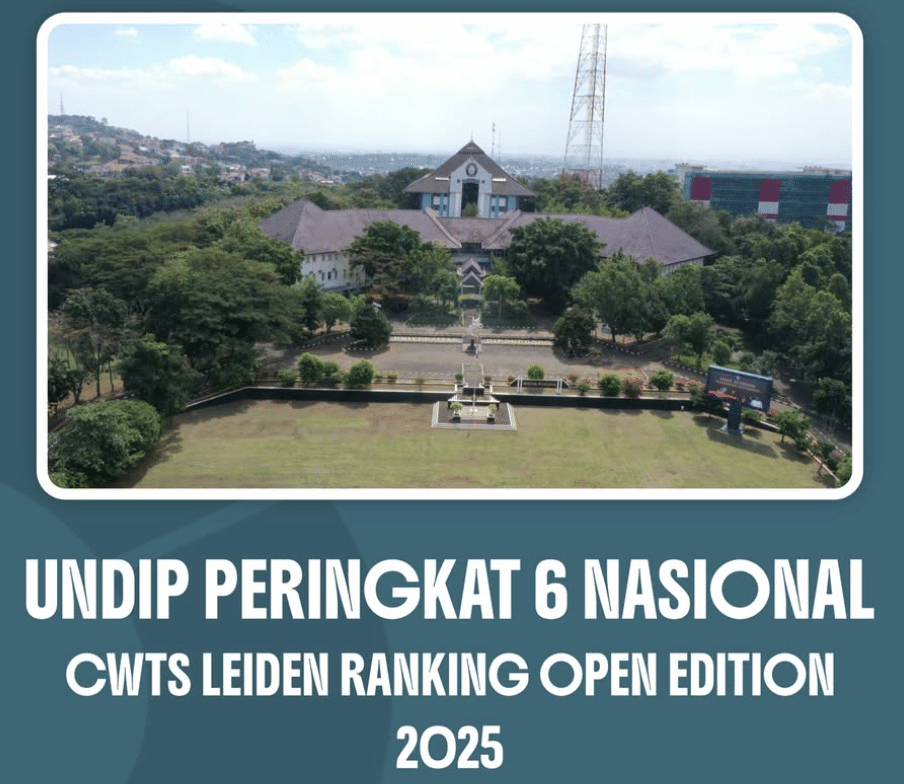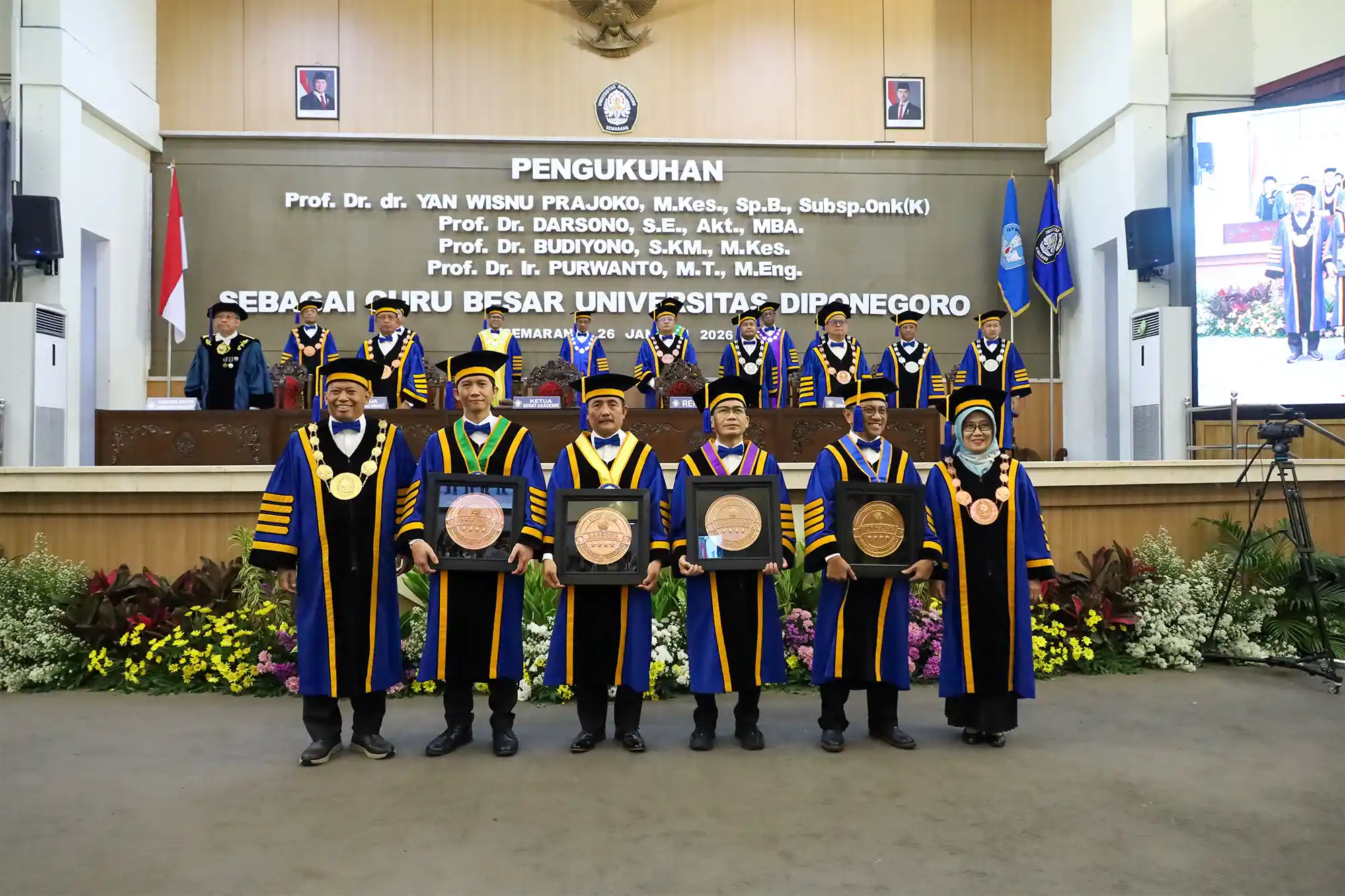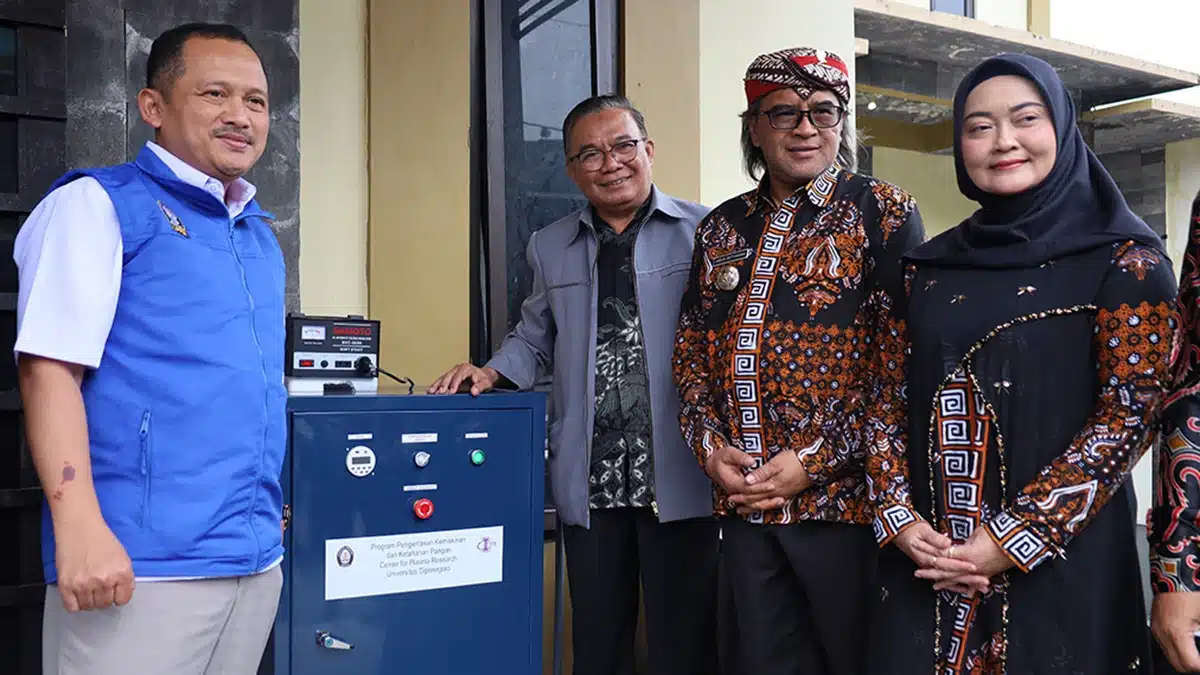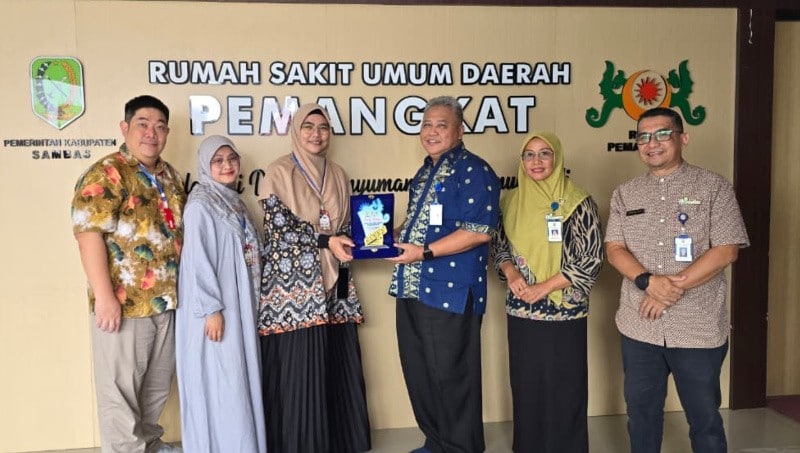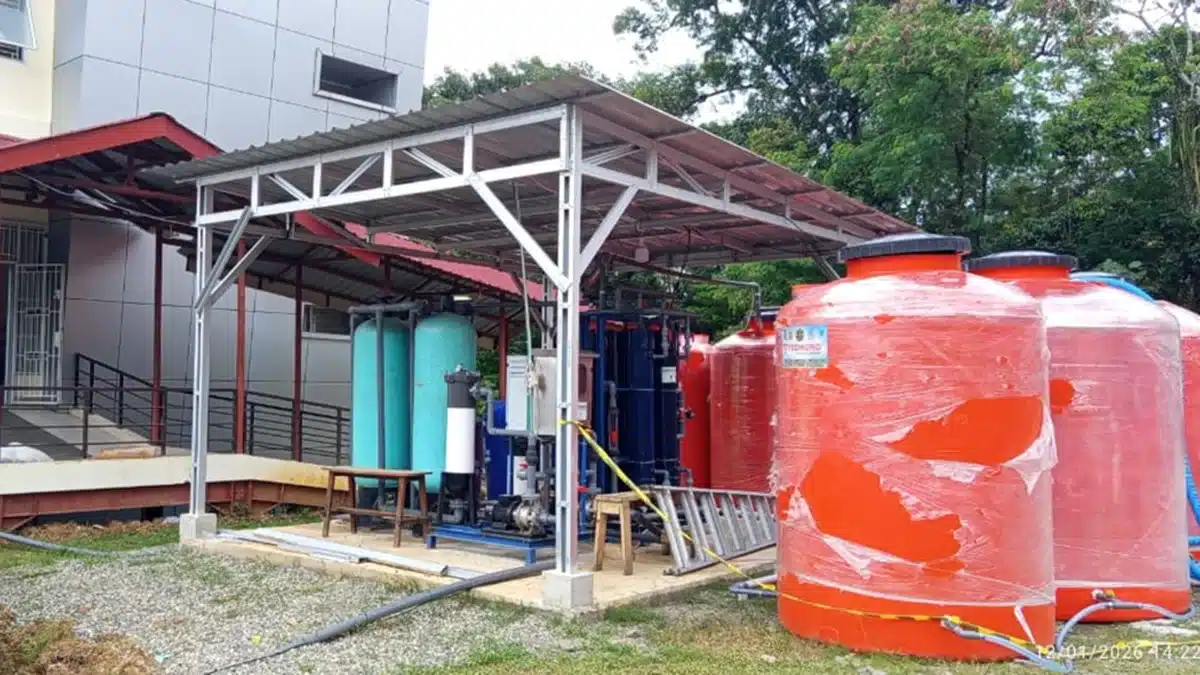SUKOHARJO- Kamal Village, located in Bulu District, Sukoharjo Regency, Central Java, is an area that has excellent potential to develop a wood charcoal processing industry. This village is known for its forest products from teak trees, especially wood, that can be processed into high-quality charcoal. So far, the people of Kamal Village have traditionally produced wood charcoal using conventional methods. Noting the existing potential, Rika Vrindia Perdana from the Department of History, as a student of the Community Service (KKN) Team II at Diponegoro University, conducted historical data mining on the profile and potential for the development of MSMEs wood charcoal processing in the village.
On Thursday (3/8/2023) afternoon, a scientific program was packaged with training and mentoring activities carried out by Rika Vrindia Perdana from the Department of History as a student of Diponegoro University’s Community Service Team II, which aims to explore historical data on profiles and potential for the development of charcoal processing MSMEs wood in Kamal Village. The training was held at the Kamal Village Hall Hall. The activity was held at 13:00-15:00 WIB. The program participants gathered in high spirits to study and discuss opportunities and challenges in developing the wood charcoal industry. This program was attended by home industry business actors producing wood charcoal in Kamal Village. They have exciting stories about how they started a wood charcoal business and overcame various obstacles in the production and marketing process.
In this program, historical methods are used to collect and analyze historical data regarding the profile and development of the charcoal industry in Kamal Village. Then conduct interviews with wood charcoal business actors who have been operating for years. From the data collected, it is possible to see the pattern of industrial development from when it was first established until now, starting from the amount of production and the market to the potential for increasing the welfare of the surrounding community. First, historical data on the profile of wood charcoal processing shows that the business of wood charcoal processing in Kamal Village has been around for decades. Only a tiny proportion of people were initially involved in this industry, but the number of business actors has increased significantly. The increased number of workers shows that this village has a strong foundation in wood charcoal processing. Second, the potential for developing MSMEs wood charcoal processing in Kamal Village is enormous. The data shows that the wood charcoal produced from Kamal Village is of good quality and is one of the examples in Sukoharjo Regency. Then, wood charcoal in Kamal Village becomes the raw material and is distributed to local and international markets.
In addition, participants also shared experiences and knowledge about innovative and environmentally friendly wood charcoal processing techniques. The research results and interviews conducted by Rika Vrindia Perdana were written as the program’s output, namely the booklet “Innovation in Empowering MSMEs for Wood Charcoal Production to Improve Community Welfare in Kamal Village.” Specifically for the scientific program, this booklet summarizes historical data, potential analysis, recommendations on strategies for developing the wood charcoal industry, and data on the wood charcoal home industry in Kamal Village. The booklet was distributed to charcoal business actors as a guide in developing the wood charcoal industry in Kamal Village. To achieve efficiency in archive management, it also involves digital technology in recording historical profile data and creating the charcoal processing industry with the E-Booklet version. With an archive digitalization system, accessing data becomes more accessible and more efficient. The stored information can be searched quickly and accurately to facilitate decision-making and planning future development programs.
One of the participants in the wood charcoal home industry in Kamal village, Mr. Mardi, expressed his joy at the opportunity to take part in this scientific program. He said, “This program benefits us, the charcoal business in Kamal Village. We gain new insights about our business development potential and how to improve people’s welfare through this industry. I hope that with this booklet, we can implement the strategies discussed to achieve greater success.” From the enthusiasm and passion of the program participants, there is no doubt that the charcoal industry in Kamal Village has excellent potential for development. With the help of the local government and support from the community, Kamal Village can become a center for superior wood charcoal production and make a real contribution to improving people’s welfare. This scientific program by the Diponegoro University Community Service Students Team II has opened insights and strengthened the communication network between wood charcoal business actors in Kamal Village. Thus, strategic steps in developing MSMEs wood charcoal processing in Kamal Village are crucial to improving product quality and competitiveness. Using historical profile data and existing potential is expected to create a sustainable wood charcoal processing industry and provide significant economic benefits for the people of Kamal Village. (Rika Vrindia Perdana and Bogi Budi Jayanto)


